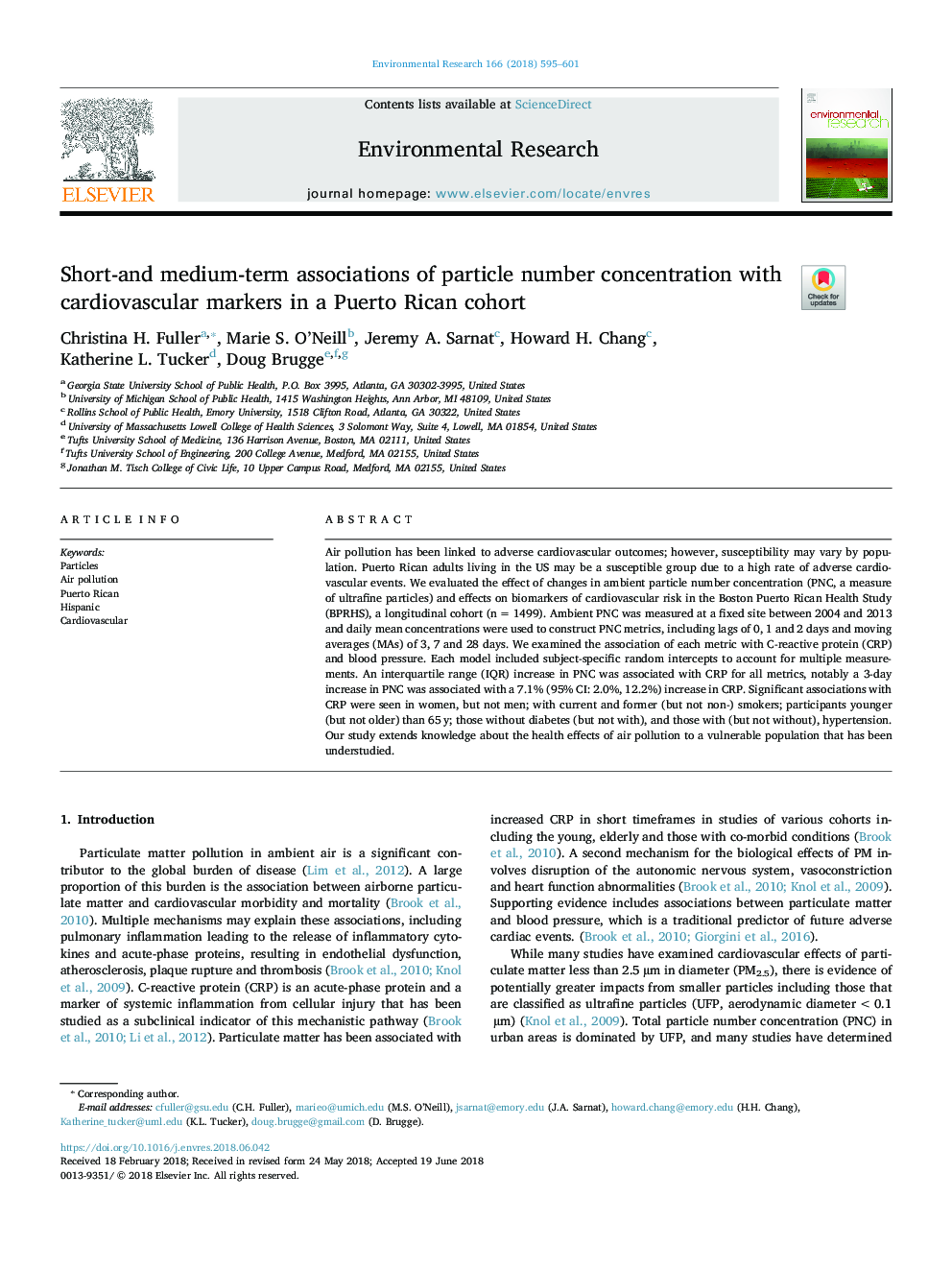| Article ID | Journal | Published Year | Pages | File Type |
|---|---|---|---|---|
| 8868842 | Environmental Research | 2018 | 7 Pages |
Abstract
Air pollution has been linked to adverse cardiovascular outcomes; however, susceptibility may vary by population. Puerto Rican adults living in the US may be a susceptible group due to a high rate of adverse cardiovascular events. We evaluated the effect of changes in ambient particle number concentration (PNC, a measure of ultrafine particles) and effects on biomarkers of cardiovascular risk in the Boston Puerto Rican Health Study (BPRHS), a longitudinal cohort (nâ¯=â¯1499). Ambient PNC was measured at a fixed site between 2004 and 2013 and daily mean concentrations were used to construct PNC metrics, including lags of 0, 1 and 2 days and moving averages (MAs) of 3, 7 and 28 days. We examined the association of each metric with C-reactive protein (CRP) and blood pressure. Each model included subject-specific random intercepts to account for multiple measurements. An interquartile range (IQR) increase in PNC was associated with CRP for all metrics, notably a 3-day increase in PNC was associated with a 7.1% (95% CI: 2.0%, 12.2%) increase in CRP. Significant associations with CRP were seen in women, but not men; with current and former (but not non-) smokers; participants younger (but not older) than 65â¯y; those without diabetes (but not with), and those with (but not without), hypertension. Our study extends knowledge about the health effects of air pollution to a vulnerable population that has been understudied.
Related Topics
Life Sciences
Environmental Science
Health, Toxicology and Mutagenesis
Authors
Christina H. Fuller, Marie S. O'Neill, Jeremy A. Sarnat, Howard H. Chang, Katherine L. Tucker, Doug Brugge,
